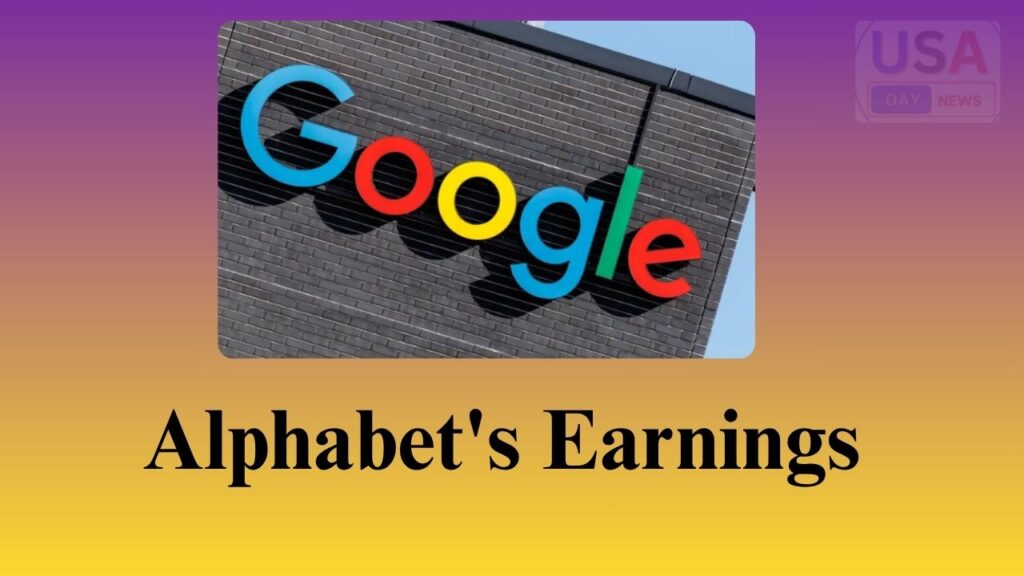Alphabet’s Earnings The Unprecedented Microscope on Google’s Golden Goose
Alphabet’s Earnings The Unprecedented Microscope on Google’s Golden Goose: For decades, Google Search wasn’t just Alphabet’s crown jewel; it was the undisputed engine room, the seemingly invincible profit machine that powered moonshots, funded massive hiring sprees, and cemented the company as a tech titan. However, as Alphabet prepares to report its latest quarterly results, the scrutiny surrounding Google Search has intensified to an unprecedented level.
This isn’t merely about whether the numbers meet Wall Street’s expectations; it’s a multi-faceted examination of whether the foundational pillar of the entire Alphabet empire is facing its most significant confluence of threats in history. The microscope isn’t just focused on revenue and profit margins; it’s probing the very essence of Search’s future dominance.
The Earnings Lens: Beyond the Bottom Line.
Traditionally, earnings calls dissect revenue growth, advertising click-through rates (CTR), cost-per-click (CPC) trends, and overall profitability. Analysts will still pore over these metrics with hawk-like precision. Any sign of deceleration in Search revenue growth, or pressure on those crucial CPC figures, will send ripples through the market. However, the context this quarter is radically different. Investors aren’t just asking if Search is profitable;
they’re demanding clarity on how sustainable that profitability is amidst a perfect storm of challenges. They’ll be listening intently for management’s commentary on the cost of defending Search’s position, particularly the massive investments in AI infrastructure and talent required to keep pace. The margin story – how much of Search’s immense profits are being consumed by the fight for its own future – becomes paramount.
The AI Revolution: Disruption at the Doorstep.
The most existential threat casting its long shadow over these earnings is the rapid ascent of generative AI, particularly large language models (LLMs). The emergence of tools like ChatGPT demonstrated that users could get direct, conversational answers to complex queries, bypassing the traditional list of blue links that Google perfected. Google’s response, Gemini and the Search Generative Experience (SGE), represents a fundamental shift. SGE aims to integrate AI-generated summaries directly above search results.. While potentially enhancing user experience, it introduces profound questions Wall Street needs answered:
Will AI summaries reduce the number of clicks on traditional ads? If users get their answer instantly at the top, why scroll down? How will ad formats and pricing evolve within this new AI-first interface? The earnings call must address the tangible impact SGE is having, or is projected to have, on core search advertising metrics. Silence or vague assurances won’t suffice; the market fears a potential cannibalization of Google’s golden goose by its own innovation.
The Regulatory Guillotine: A Looming Shadow.
Simultaneously, Google Search is under siege not just technologically, but legally and politically. The landmark U.S. Department of Justice antitrust trial, focused squarely on Google’s alleged monopolistic practices in search and search advertising, concluded arguments late last year. A verdict, potentially finding against Google and mandating significant changes to its business model (like unbundling search from its Android or browser dominance), looms large. Across the Atlantic, the European Union’s Digital Markets Act (DMA) is already forcing tangible changes, such as prominent choice screens for search engines on Android devices and browsers within the EU.
Early data suggests these changes are impacting Google’s market share in Europe. Earnings commentary needs to quantify the financial hit from these regulatory pressures. How much revenue is being lost to competitors gaining traction via choice screens? What are the operational costs of compliance? Most importantly, how resilient is the core search ad business if forced into a more competitive, less default-driven landscape globally?
The User Experience Conundrum: Quality vs. Commercialization.
Beneath the macro threats lies a persistent user-level tension. Critics and many users lament the perceived decline in organic search result quality. Results are increasingly crowded with ads, “sponsored” content, affiliate-laden listicles, and SEO-optimized pages that prioritize discoverability over genuine expertise. The push to integrate more shopping features, local services, and AI panels, while potentially useful, can also make the core search experience feel cluttered and less focused on pure information retrieval.
If SGE delivers concise, accurate answers, it could alleviate this. But if it falters or pushes commercial integrations too aggressively, it risks further alienating users seeking unbiased information. Earnings might not directly reflect user sentiment, but declining user engagement metrics or slowing growth in search query volume would be a major red flag, suggesting the product’s fundamental appeal is waning under commercial and AI pressures.
The Investor Calculus: Valuation in the Age of Uncertainty.
This confluence of factors creates a unique valuation challenge. Search remains an unparalleled cash generator, funding Alphabet’s Cloud ambitions, YouTube investments, and Other Bets. But the discount rate investors apply to that future is changing the search for cash flow. Risks that seemed theoretical years ago AI disruption, successful antitrust violations, regulatory failures—now seem clear and imminent.. Investors need Alphabet to articulate a convincing, data-backed narrative that demonstrates:
- AI as Net Positive: That SGE will enhance the advertising ecosystem, not destroy it, potentially opening new, valuable ad formats.
- Regulatory Resilience: That the company can navigate the legal landscape, absorb compliance costs, and maintain dominance even in a world with more enforced choice.
- Sustainable Moat: That the combination of data, infrastructure, and AI talent creates a defensible advantage competitors cannot easily replicate, even with regulatory tailwinds.
- Cost Discipline: That the massive AI investments are being managed efficiently without indiscriminately eroding the profitability that makes Alphabet attractive.
The Verdict Beyond the Quarter.
Alphabet’s upcoming earnings report is more than a financial snapshot; it’s a critical stress test for Google Search in the modern era. While the immediate numbers revenue, EPS, cloud growth will drive short-term stock movement, the true significance lies in the subtext and management’s forward-looking statements. Can Sundar Pichai and his team convincingly argue that Google Search is successfully navigating the AI pivot without mortally wounding its ad model?
Can they quantify and contain the growing regulatory headwinds? Can they reassure investors that the immense profitability of Search isn’t just a relic of the past, but the fuel for a sustainable, albeit transformed, future? The microscope is firmly in place. The world isn’t just watching Alphabet’s earnings; it’s scrutinizing the future viability of the internet’s most powerful gateway. The pressure has never been higher.




